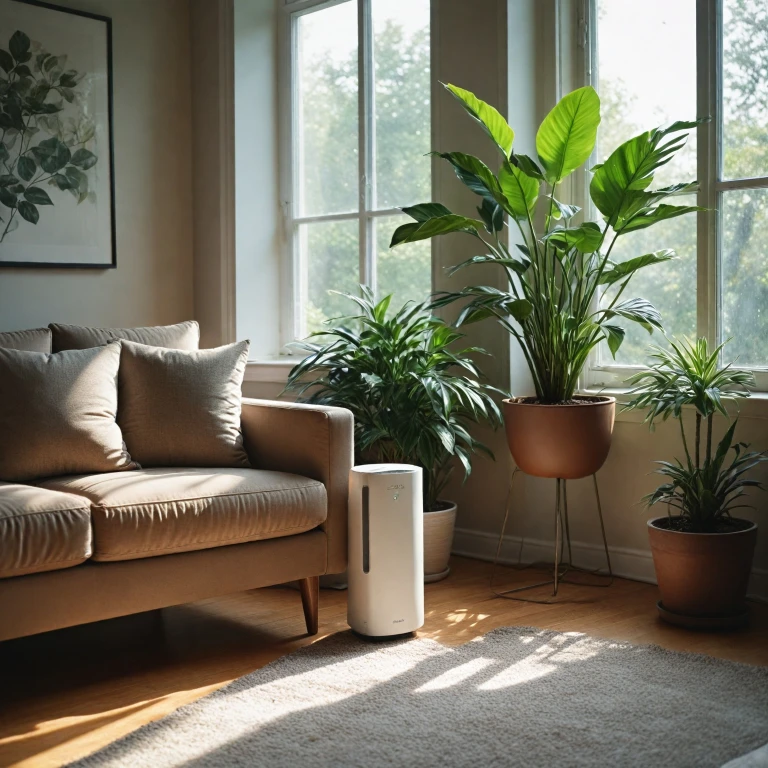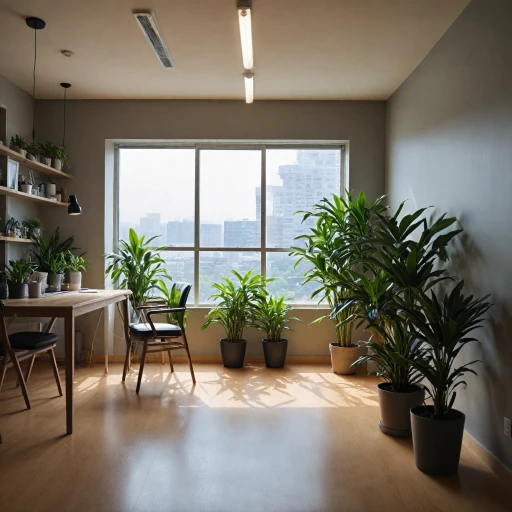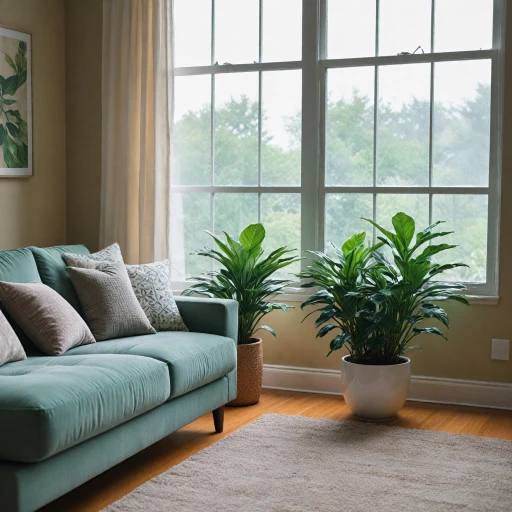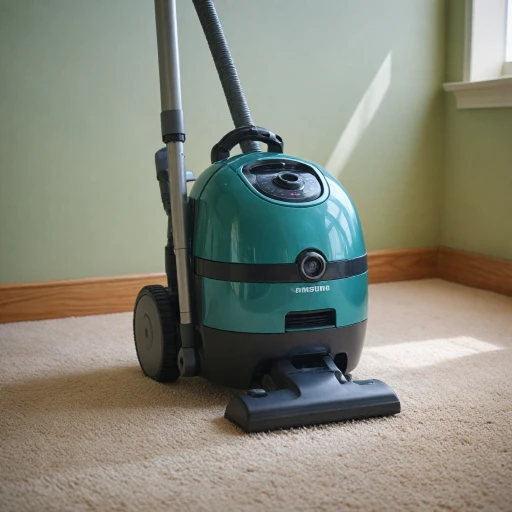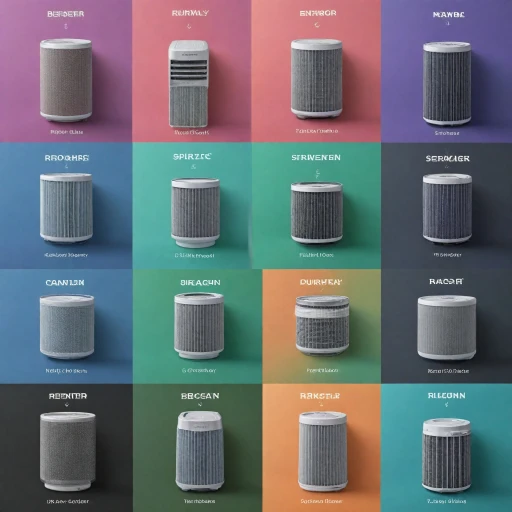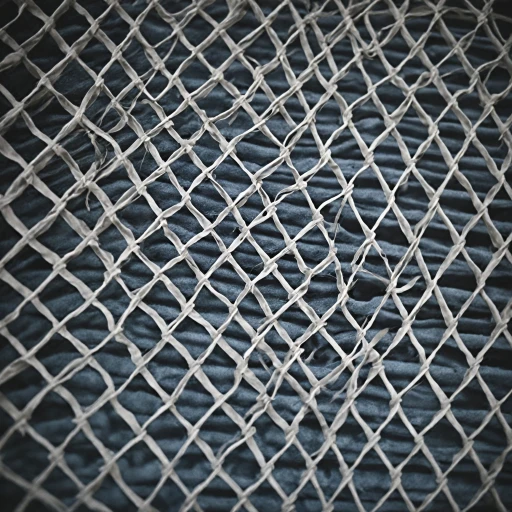Understanding Air Purifiers
Let’s Talk About Air Purifiers
Air purifiers play a critical role in improving the quality of indoor air, cleaning up the dust, allergens, and various pollutants filling our homes. Whether you’re living in a bustling urban area or a quiet suburb, the benefits of an air purifier cannot be overstated. These handy devices primarily work by using fans to draw air through a series of filters, capturing unwanted particles as they go. Now, if you're wondering what kind of particles we're talking about, it’s everything from typical dust and pollen to more aggressive pollutants like mold spores, smoke, and bacteria. And no, we're not just blowing hot air here – the results are backed by extensive research (Source: you can find an in-depth guide on choosing the best HEPA vacuum for mold removal here).The Power of HEPA Filters
One of the principal components making these purifiers effective is the HEPA filter. You’ve probably heard this term before. HEPA stands for High-Efficiency Particulate Air, and these filters are champs when it comes to trapping the smallest of particles, down to 0.3 microns. That’s right, they’re the unsung heroes keeping the unseen nasties out of our lungs. But hey, don't just take my word for it. Think about those allergy-triggering polls or even the microscopic bacteria floating indoors. An air purifier armed with a quality HEPA filter can significantly reduce these airborne intruders, helping you breathe easier.Beyond Dust: Air Purifiers for Health
It’s essential to consider the broader health benefits as well. If you or someone in your house suffers from allergies or asthma, a good air purifier dramatically improves living conditions. By cutting down on the exposure to allergens, these devices help lessen the frequency and intensity of reactions, leading to a more comfortable life indoors. And here’s a neat little fact – some air purifiers even come with activated carbon filters that absorb unwanted odors and chemicals in the air. So, go ahead, invite your smoker friend over without worrying about lingering smells! In essence, investing in an air purifier isn’t just about ensuring clean air; it's about enhancing your home's living environment. Whether you’re after a little peace of mind or looking to tackle serious air quality issues, these machines pack a punch.How Ionizers Work
Unveiling the Mechanism of Ionizers
Ionizers, also known as air ionisers, are devices designed to improve indoor air quality by releasing negative ions into the air. These negative ions attach to airborne particles, such as dust, pollen, and other pollutants, causing them to become heavy and fall to the ground or stick to surfaces. This process can help reduce the number of particles in the air, potentially leading to cleaner air.
Unlike traditional air purifiers that use filters like HEPA filters to trap particles, ionizers work without a physical filter. This can be beneficial in reducing the need for frequent filter replacements, which is a common maintenance requirement for many air purifiers. However, it's important to note that while ionizers can reduce airborne particles, they may not be as effective in removing all types of pollutants, such as gases or odors, which are often better addressed by air purifiers equipped with activated carbon filters.
Understanding the Role of Ozone
One of the key considerations when using ionizers is the potential production of ozone. Some ionizers can generate ozone as a byproduct, which can be a concern for health, particularly for individuals with respiratory conditions. Ozone is a known lung irritant and can exacerbate issues such as asthma. It's crucial to research and choose an ionizer that is certified to produce minimal or no ozone to ensure safety and health.
For those looking to explore more about the effectiveness and safety of ionizers, it's recommended to consult reliable sources and reviews. For instance, understanding the benefits of using specific equipment like HEPA vacuums for mold removal can provide insights into how different air cleaning technologies compare in terms of safety and efficiency. Learn more about HEPA vacuums for mold removal.
Choosing Between Ionizers and Air Purifiers
When deciding between an ionizer and an air purifier, consider the specific air quality needs of your home. Ionizers can be a good choice for reducing dust and pollen, but for comprehensive air purification, especially in areas with high levels of pollutants or for individuals with health sensitivities, an air purifier with HEPA filters might be more effective. Balancing the benefits and limitations of each technology will help you make an informed decision that aligns with your indoor air quality goals.
Comparing Effectiveness: Air Purifiers vs Ionizers
Measuring Up: Air Purifiers vs Ionizers
Deciding between air purifiers and ionizers can feel like choosing between two equally tempting options at a world-class buffet. Each offers its own way of targeting indoor particles like dust, pollen, and even bacteria. But how do they stack up against each other when it comes to overall effectiveness and improving air quality? Air purifiers are the heavyweights in air filtration. Equipped with HEPA filters, they're relentless in hunting down particles as tiny as 0.3 microns—think of that dense layer of dust settling on surfaces or the pollen triggering your allergies. By pulling air through their filters, air purifiers trap and lock away those tiny nuisances, ensuring a cleaner breeze in your home. You can find more detailed information in our in-depth guide on air purifiers. On the flip side, ionizers, or ionisers as you'll see it spelled across the pond, take a different approach altogether. This time, the technology plays a quieter role, releasing negative ions that cling to airborne particles. These charged particles eventually settle on surfaces—great for clearing the air, but you'll need to keep up with dusting and cleaning to remove them permanently. Here's the thing with ionizers: they can also introduce ozone, a known respiratory irritant. While some consider this a minor trade-off in the fight against indoor air pollutants, it's a detail worth noting for those with sensitive respiratory systems. So which comes out on top in this match-up? Air purifiers are typically more effective for ongoing serious concerns about air quality, especially in spaces battling allergens or household's pesky pollutants. If simplicity and minimal maintenance are your priority, and you don't mind a bit of proactive cleaning, an ionizer could serve well. To dig deeper into the specifics, weigh the benefits, and discern what suits your needs, check out our comprehensive comparison. Whichever you choose, cleaner air is the ultimate goal—breathe easy knowing you're making strides in that direction.Health Considerations and Safety
When It Comes to Health and Safety
We all want what's best for our families and ourselves, especially when it comes to something as crucial as the air we breathe. That's why the subject of health and safety is a major talking point when choosing between air purifiers and ionizers. First, let's chat about air purifiers. Most traditional air purifiers use a popular component called a HEPA filter. This mighty little gadget is known for rooting out those pesky tiny particles causing all sorts of havoc in our homes, like dust, pollen, and even some bacteria. After all, who wouldn't want a purifier that keeps the air cleaner than a mountain breeze? Now, folks who have bought into the ionizer hype point out that these devices release negative ions — yeah, it's a little bit science-y — into the air. The negative ions attach to pollutants like dust and make them fall to the ground, kind of like a microscopic game of tag. But is there a catch? Unfortunately, sometimes there can be. See, when ionizers generate these ions, they might also create a little something called ozone. Now, while ozone's not all bad (it does protect us from excessive UV sunlight), breathing it in could be harmful — especially if you have respiratory issues. The Environmental Protection Agency (EPA) has shed light on the concerns about indoor ozone levels from ionizers, so that's something to chew on before making a decision about your indoor air. Both devices serve the goal of improving air quality, but the method and potential risks differ. Air purifiers, with their HEPA filters, tend to play it safe in terms of health risks. Ionizers, on the other hand, might appeal with their futuristic approach but bring along a bit of baggage with the ozone sidekick. Be sure to consider those in your household with allergies, asthma, or other sensitivities when deciding which option aligns best with your safety priorities. For more on picking the right air cleaning solutions, you might want to explore the broader range of air cleaning options, including HVAC HEPA filters, as they can offer a compelling way to maintain a healthier indoor environment.Cost and Maintenance
Evaluating Cost and Maintenance for Air Cleaners
When you're deciding between air purifiers and ionizers, it's wise to consider your wallet and the effort you'd be willing to invest in their upkeep. This can play a significant role in choosing the right solution for maintaining excellent air quality in your home. Air purifiers, most notably the models with HEPA filters, are known for their ability to catch dust, pollen, and harmful particles. But don't let a filter's catching ability catch you off guard. While they do a fantastic job at scrubbing your air from contaminants, HEPA filters need regular changing. You're looking at swapping them out every six months to a year, depending on how hard they're working in your space. This cost can add up over time, so keep it in mind when planning your budget. Ionizers, on the flip side, weave their magic by emitting negative ions that cling to pollutants, pulling them out of the air. They're usually lower maintenance because they don’t have filters. Sounds like a win, right? But hang tight—some ionizers can produce ozone, a by-product you don’t want hanging around indoors. Always make sure you’re picking an ionizer that minimizes ozone generation to stay health conscious. Now, let's talk numbers. Air purifiers might ask for a bigger upfront investment, given the technology and the quality of air cleaning they provide. The maintenance fees mostly revolve around filter replacements. If you’re eyeing an ionizer, the initial cost might be friendlier, but keep a close watch on its ozone levels. Plus, you might have to occasionally clean parts to keep it functioning well. Ultimately, understanding each option’s financial impact over its lifetime will better inform your choice. Weigh the long-term costs and benefits. Whether you’re battling allergens, odors, or other indoor pollutants, taking the time to match the right device to your health and financial needs ensures you're equipped for clean air. For more insight into choosing devices to handle specific pollutants like mold, check out this guide on vacuum for mold removal. It’s always smart to explore all your options!Making the Right Choice for Your Home
Finding Your Fit: The Perfect Air Solution for Your Home
After assessing how both air purifiers and ionizers operate, you might be wondering what suits your space best. To simplify this choice, consider your primary aim. If your concern is filtering out dust, pollen, and pesky particles with high efficiency, a HEPA air purifier might just be your best bet. These purifiers are expertly designed to trap the smallest specks that float in your indoor air. For those who are all about neutralizing odors and viruses, you might find yourself leaning toward ionizers or ionisers. These devices, employing negative ions, can disrupt some bacteria and odor-causing particles, often enhancing your indoor air quality subtly over time. Before you purchase, it's wise to reflect on these points:- Allergy Challenges: If battling allergies is a daily grind, lean on the efficacy of purifiers with HEPA filters. They’re renowned for capturing high percentages of allergens.
- Sensitive to Smells: If odors linger more than you'd like, activated carbon filters—often found in air purifiers—can be particularly beneficial.
- Maintenance Timeframe: Think about how much time you can devote to upkeep. Filters will need changing, whereas ionizers usually require a simple wipe down. Maintenance costs might also influence your decision.
- Consider Safety: Ionizers can sometimes produce ozone as a by-product, something to keep in mind if respiratory issues are a concern in your household.
